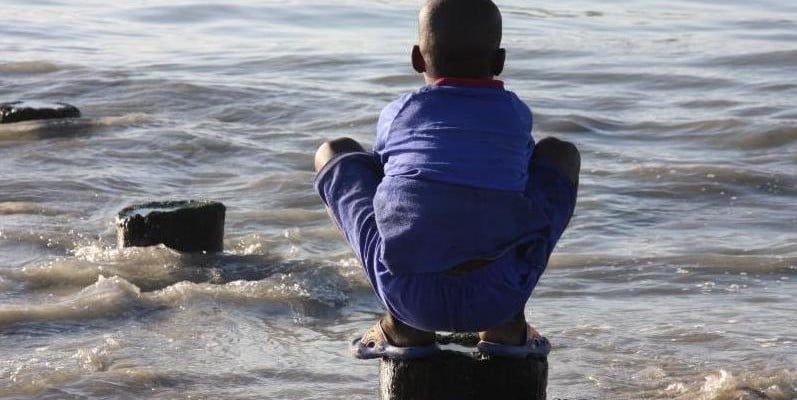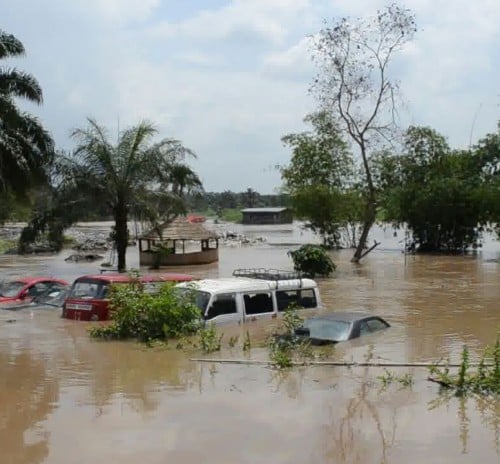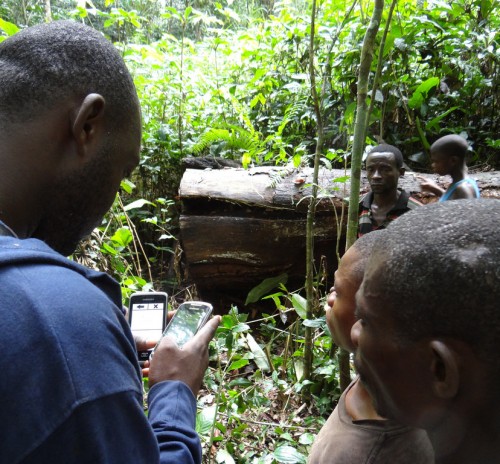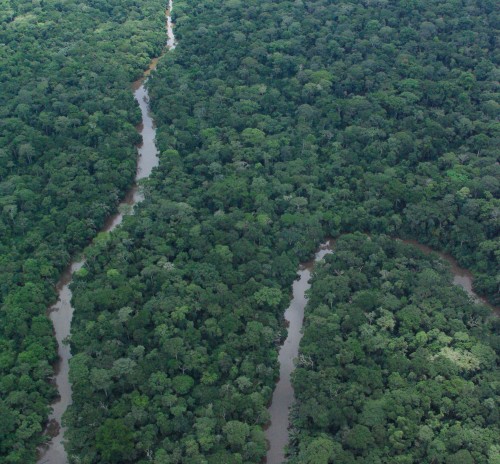Frustration at lack of progress in negotiations at the UN climate summit led to an outbreak of megaphone diplomacy today, with 134 developing countries issuing a statement demanding that rich countries provide more finance for them to adapt to rising temperatures and sea levels.
The statement accused them of trying to amend the UN Framework Convention on Climate Change so that the more wealthy developing countries such as China were also forced to help the poorest nations adapt to climate change. The statement said the richer countries were trying to avoid their responsibility for causing global warming in the first place.

Vulnerable countries such as The Gambia need aid to strengthen coastal defences against future sea level rise. Image: Camilla Faurholdt-Löfvall via Flickr
The dramatic release of a strongly-worded statement before the two weeks of negotiations had reached the halfway stage showed that the success of the talks is in jeopardy.
Normally, all these tensions are dealt with behind the closed doors, so delegates from the European Union and the US were clearly shocked by the development. They spent several hours discussing how best to respond to avoid a breakdown, but a statement from the rich nations was still awaited as the day’s proceedings drew to a close.
Technology transfer
Part of the statement issued by South African delegate Nozipho Mxakato-Diseko, on behalf of the G77 group of 134 developing countries and China, said: “Under the Convention, developed countries are obliged to provide financial resources, including technology transfer and capacity building, to all developing countries.
“This is a legal obligation under the Convention. It is neither ‘aid’ nor ‘charity’, nor is it the same as development assistance.
“Finance support from developed countries relates to the impacts of historical emissions, which will only get worse with time for developing countries. The Group is therefore concerned about the introduction of new language, which has no basis in the Convention.
“Any attempt to replace the core obligation of developed countries to provide financial support to developing countries with a number of arbitrarily identified economic conditions is a violation of the rules-based multilateral process and threatens an outcome here in Paris.
“We should not shift the focus of this meeting away from arresting dangerous climate change and addressing the immediate and urgent need for adaptation and loss and damage.”
Bubu Jallow, a delegate from The Gambia representing the world’s 48 poorest countries, said the statement was issued publicly because of the “frustration” at the lack of progress in the talks.
He said: “Of course, countries like China and South Africa are far richer than they used to be, but the 1992 Convention clearly states that it is the developed countries that benefited from the industrial revolution that must be responsible for providing the finance and technical know-how to developing countries to help them adapt.
“To try to spread the financial load to other countries and restrict finance to only the poorest countries is an attempt to rewrite the Convention, and we will not stand for it.”
Aid obligations
He stressed that it did not mean that richer developing countries would not spend their money helping poorer ones. He believed that China was already doing more than the US to help countries in West Africa by providing solar panels and other infrastructure.
“There is no doubt that we will get lots of extra aid from them, but we do not want that to be an excuse for the US, the European Union and Japan to escape from their obligations.”
At stake is the $100 billion dollars of annual climate change aid promised to developing countries by 2020. At present, $64 billion has been pledged, according to rich donors.
But Jallow was scathing about whether this was “real money”. He asked: “Is it new money, or money diverted from other aid budgets and suddenly labelled climate funds? Is it grants, soft loans or loans at commercial rates? There is no audit, no verification. We do not accept it is real because we have not seen any of it.”
He said the statement was released “as a shot across the bow” to alert the rich countries that the talks were heading for failure unless they “get real” about this issue. − Climate News Network
Click here to read the original article.
Related posts
-

RDC : Les conséquences du changement climatique se font sentir plus rudement
-

Sauvegardes sociales de la REDD+: Quelles garanties pour les plus pauvres ?
-

Les plans d’actions des pays du Bassin du Congo se montrent ambitieux
